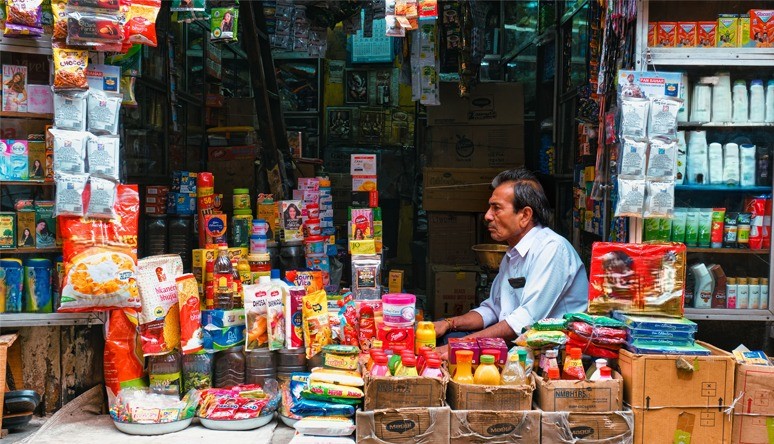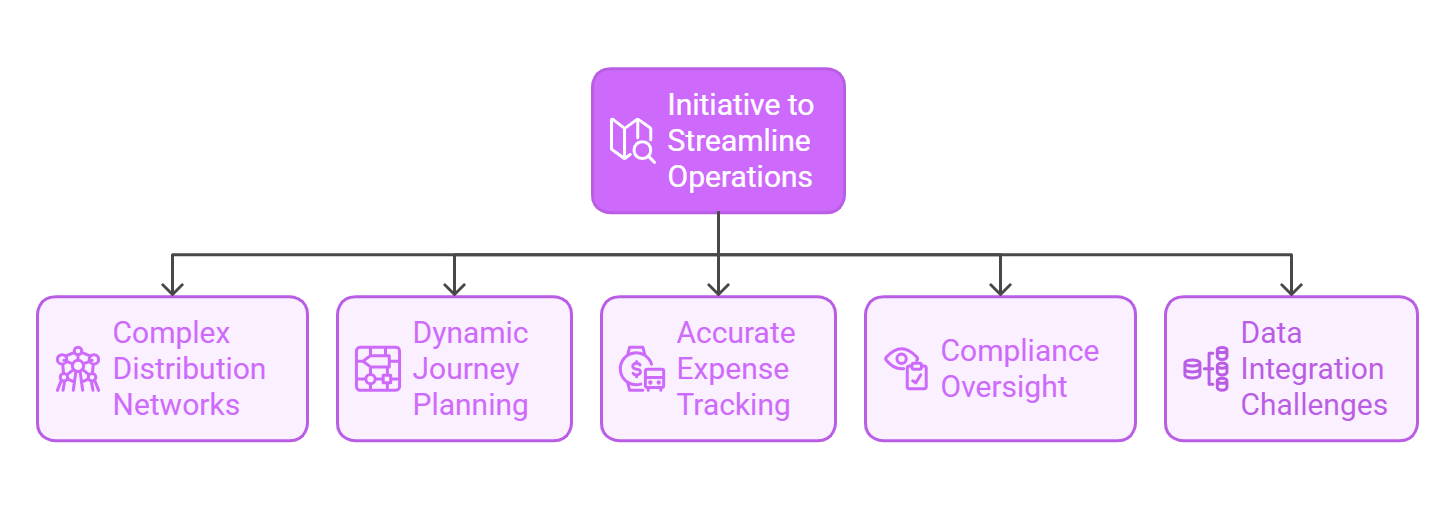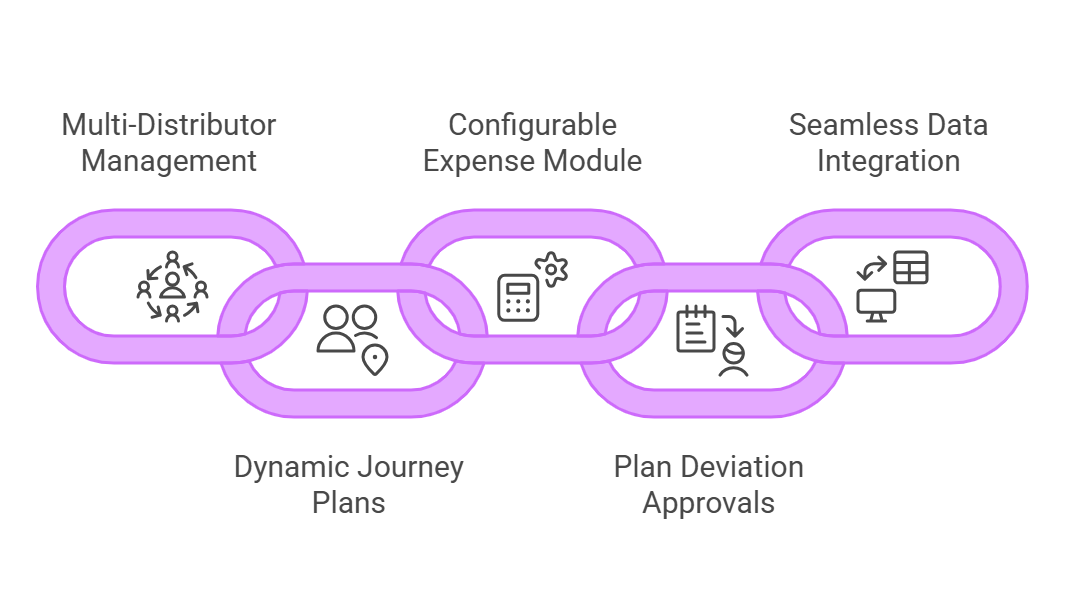
Highlights:
-
Redesigned distribution operations to manage multi-level networks, including super stockists and sub-stockists.
-
Enabled dynamic journey planning with supervisor-approved schedules for rural sales teams.
-
Developed a configurable expense tracking module, eliminating the need for high-cost tools like Google APIs.
-
Enhanced compliance through robust plan deviation approval processes.
-
Delivered a seamless data integration with the brand’s existing system.
Challenges Faced
The brand, a global leader in cosmetics and personal care, sought to streamline its rural market operations. This initiative presented a distinct set of challenges such as:

| Complex Distribution Networks | Managing a multi-level distribution model with super stockists and sub-stockists, unlike the traditional single-distributor structure. |
| Dynamic Journey Planning | With larger territories to cover, the field sales team required the ability to dynamically plan and adjust their routes each month instead of following rigid schedules. |
| Accurate Expense Tracking | Efficiently monitoring travel distances and generating expense reports without incurring high costs for tools like Google APIs. |
| Compliance Oversight | Ensuring adherence to strict operational policies, such as supervisor-approved plan deviations. |
| Data Integration Challenges | Achieving seamless integration of dynamic rural market data with their existing systems. |
To bridge the gap between distributors and rural retailers, the brand launched the Secondary Sales Representative (SSR) Initiative, aimed at expanding its presence in these underserved markets. However, traditional Sales Force Automation (SFA) tools were not designed to support the complexities of rural sales operations.
This required a customized solution that could align with the realities of rural distribution networks.
The Vxceed Solution
To address these challenges, Vxceed developed a customized solution tailored to their rural market needs, focusing on these key features:

Results
The SSR initiative transformed their rural market operations, achieving the following outcomes:
- Improved compliance and operational efficiency.
- Streamlined distribution processes and reduced manual workload.
- Enhanced engagement with rural markets, driving better business outcomes.
- Supervisors gained real-time visibility and control through an intuitive approval process.
- Field teams experienced a significant reduction in administrative tasks, enabling them to focus on core activities.
- Allowed field teams to plan and adjust their journey schedules seamlessly on a monthly basis.
Why Did They Choose Vxceed?
- Proven expertise in designing tailored solutions for complex distribution challenges.
- Deep understanding of FMCG operations and the nuances of rural markets.
- Ability to re-engineer platforms and deliver custom features like multi-level distributor management and dynamic journey planning.
- Seamless integration with existing systems, ensuring minimal disruption.
- Collaborative and client-focused approach, fostering trust and delivering measurable results.